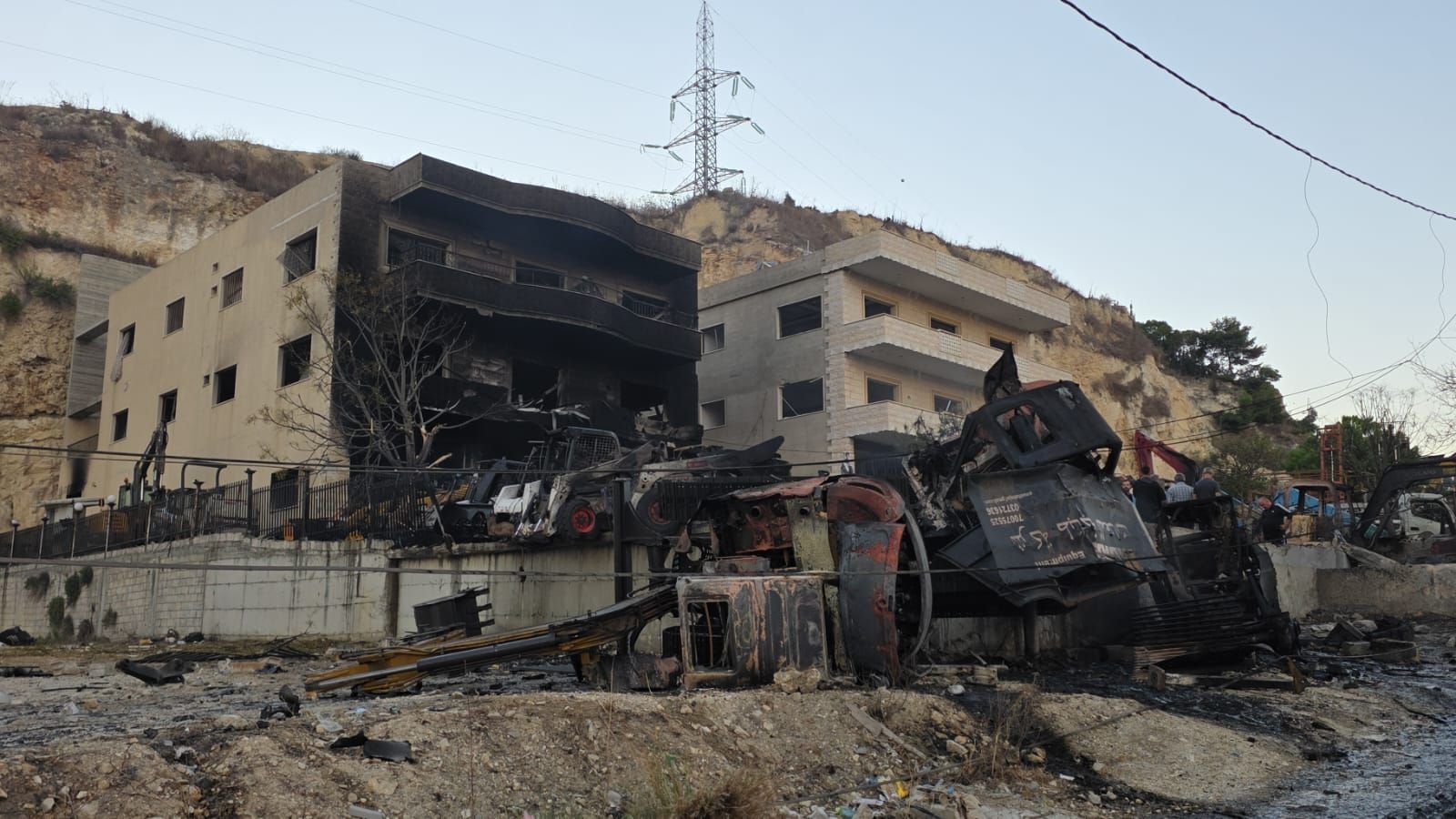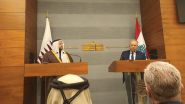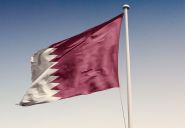
At around 3:45 AM, Israeli warplanes carried out twelve air raids targeting the area surrounding the Msayleh–Najariya highway and the adjacent valley, causing extensive destruction and cutting off the main road.
The strikes destroyed more than 300 heavy machines, including bulldozers and excavators, among them over 100 small “Bobcat”-type vehicles.
Several large industrial and construction equipment showrooms, including those belonging to Diab, Tabbaja, Jaafar, Safawi, and Tarhini, some of the biggest in Lebanon, were completely destroyed.
Losses are estimated at hundreds of millions of dollars.
The bombings also damaged the 66-kilovolt high-voltage power network and shattered the windows of dozens of homes, shops, and businesses located several hundred meters from the blast site.
According to a statement from the Emergency Operations Center of the Lebanese Ministry of Public Health, the Israeli strike on the Msayleh area killed one person, a Syrian national, and injured seven others, including one Syrian and six Lebanese, two of whom were women.
The Civil Defense continued clearing rubble and reopening the Zahrani–Msayleh highway, while search operations were still underway for two missing individuals, believed to be employees of the damaged showrooms.
The Lebanese Army Engineering Corps also issued a statement regarding an unexploded missile found at the site, noting:
“We will wait 72 hours before moving it to a safe location. It will not be detonated in the Msayleh area.”
For its part, the Israeli military said it had “targeted and dismantled a Hezbollah terrorist infrastructure in southern Lebanon,” claiming that heavy machinery in the area was being used to “rebuild terrorist infrastructure.”
A car was also hit by an Israeli drone strike on Saturday afternoon in the town of Qlaileh, in the Bint Jbeil district of southern Lebanon, killing one person.
President Joseph Aoun said that “once again, southern Lebanon is coming under blatant Israeli aggression targeting civilian infrastructure, without justification or even pretext.”
“What makes this latest assault particularly alarming is that it comes after the Gaza ceasefire agreement, and after the Palestinian side agreed to the mechanism set out in that deal to contain and neutralize weapons. This raises fundamental questions for us as Lebanese, and for the international community: is there anyone seeking to make Lebanon a substitute for Gaza, in order to sustain a political livelihood built on fire and blood?” he added.
He continued: “Since Lebanon was dragged into the Gaza war under the slogan of supporting those who launched it, isn’t it both logical and rightful now to support Lebanon by applying the Gaza truce model, especially since all parties have expressed their backing for it?”
The president concluded that “our responsibility toward all the people of Lebanon and every part of its territory compels us to raise these challenges, not merely to offer the necessary condemnation of a blatant act of aggression.”



Comments